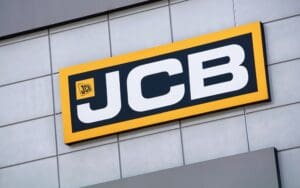British manufacturing giant JCB has backtracked on plans to convert 500 agency staff to permanent positions, citing “challenging market conditions” in the wake of Chancellor Rachel Reeves’s recent tax-raising Budget.
The decision comes as businesses across the country grapple with mounting costs and faltering confidence after employer National Insurance (NI) contributions were raised from 13.8 per cent to 15 per cent.
A JCB spokesman confirmed that the company “fully intends” to offer permanent contracts to a number of agency employees but said these plans would be delayed by at least six months, until trading conditions improve. The recruitment package had previously been used to help secure an inflation-linked pay deal late last year.
The U-turn has sparked an angry response from union leaders. GMB, which represents many of the affected workers, claims that JCB is reneging on the agreement behind the pay settlement. A GMB spokesman criticised the move as “unacceptable,” emphasising that “permanent contracts for the lowest-paid workers are a priority for any trade union.”
JCB is not alone in scaling back staffing in anticipation of a downturn. The construction equipment specialist had already shed 230 agency workers before the Budget, amid fears of a slump in factory orders. New data from S&P Global reinforces this pessimism, with December’s purchasing managers’ index (PMI) for manufacturing falling to 47, its weakest reading in 11 months. According to Rob Dobson, director at S&P Global, the Chancellor’s Budget has dampened confidence and raised costs “at UK factories and their clients alike,” further stifling hiring plans.
The impact of the Chancellor’s £25 billion tax raid appears to be rippling through other industries, too. Genting Casino, operating 32 sites in the UK, has lowered its annual pay offer for staff from 3 per cent to 2 per cent, while Castlewood Hotels, which runs three properties in the South East, said the combined effect of increased NI contributions and a higher minimum wage could cost the firm an additional £200,000 this year.
Castlewood’s owner, Daniel Sangiuseppe, has postponed refurbishments, cut staff hours, and halved planned pay rises across his 140-strong workforce. “The rhetoric was all about growth,” he said. “But this particular policy, as far as we’re concerned, is anti-growth.”
As the Chancellor continues to defend her Budget measures, sentiment among manufacturers and service providers remains fragile. December’s data suggests UK businesses face a protracted period of caution, leading to reduced recruitment, scaled-back investments, and concerns about an impending “industrial recession.”
Read more:
JCB postpones 500-job hiring spree as chancellor’s tax hike rattles business confidence

